This article was medically reviewed by Lacy Windham, MD. Lacy Windham, MD, is a Board-Certified Obstetrician & Gynecologist in Cleveland, Tennessee. Dr. Windham attended medical school at the University of Tennessee Health Science Center in Memphis. Her residency was completed at Eastern Virginia Medical School in Norfolk, Virginia. She was the recipient of multiple awards during her residency training, including Most Outstanding Resident in Maternal Fetal Medicine, Most Outstanding Resident in Oncology, Most Outstanding Resident Overall, and Special Award in Minimally Invasive Surgery.
There are 10 references cited in this article, which can be found at the bottom of the page.
wikiHow marks an article as reader-approved once it receives enough positive feedback. In this case, 100% of readers who voted found the article helpful, earning it our reader-approved status.
This article has been viewed 531,418 times.
Pregnancy and childbirth greatly alter the levels of hormones in the body. These changes in hormones can in turn trigger changes in hair growth.[1] During pregnancy, your hair will remain in the growth or transitional stages, so it becomes much thicker with hair that would normally have stopped growing or fallen out. About three months following delivery, your hair will resume falling out, and all the hair that would have fallen out during your pregnancy may fall out quite suddenly. Rest assured that this is normal and temporary, and that this rate of hair loss will not continue. Take care of your hair and treat it gently while you wait for your normal hair growth to return.[2]
Steps
Being Gentle With Your Hair
-
1Avoid tight hairstyles. Pulling on your hair, or styling it tightly, can cause hairs to be pulled out. Styling or playing with your hair too often may also contribute to hair loss. Opt for loose hairstyles to lessen the strain and damage to your hair.[3]
- Avoid tight braids, using hair rollers, or tight hair clips and holders.
- Don't use hot oil treatments on your hair either, as they can be damaging to the hair and scalp.
- Avoid playing with your hair often, twisting or pulling on it.[4]
-
2Use a comb with widely spaced teeth. If your comb has tightly spaced teeth, it may pull on your hair more than a brush with wider teeth would. This pulling can cause more hair loss. Use a comb with widely spaced teeth for a gentler way to brush your hair.[5]
- When brushing your hair, always brush gently.
- Wet hair is more fragile than dry hair. Be careful when combing or brushing wet hair and don't tug or pull on tangles.[6]
Advertisement -
3Be careful with heat. Using any heated tool on your hair can cause damage and increase hair loss. Try to avoid using any device such as hair dryers or curling irons. If you must use a hair dryer, set it to the coolest setting possible.[7]
Working With Your Hair
-
1Find the right hair products. Certain hair products, shampoos, and conditioners, are believed to help keep hair looking full and healthy. You may have to try a few different products before you find one that works best for your hair and hairstyle. Try looking for some of the following qualities:[8]
- Look for products labeled “volumizing shampoo.”
- Avoid “conditioning shampoos,” as these can make the hair appear less full or heavy.
- Avoid “intensive conditioners.” These may be too heavy and cause your hair to look less full.
- Try to find conditioners that are designed for fine hair.
- Products that contain biotin or silica may help as well.[9]
-
2Avoid stress. Being under stress can increase hair loss. Stress may cause your hair follicles to go into a resting phase, resulting in thinner hair coverage. Hair loss caused by stress can be reversed by reducing that stress.[10] This, of course, may be difficult to do with a new baby. Make sure you are asking for help when you need it and your partner is helping you as much as possible.
-
3Try a new haircut. Ask your hairstylist to cut your hair in a new style, that makes it look fuller.[11] Remember that hair loss caused during post-pregnancy is temporary,[12] and that you can always restyle your hair once it starts recovering.
- Longer hairstyles can make hair loss more noticeable.[13]
-
4Watch your diet. Your diet can have an effect on the health of your hair. By eating certain foods you can help ensure that you have healthy hair. Try monitoring your diet for the following vitamins and minerals:[14] [15]
- Protein. Hair is made up of protein. Getting enough protein in your diet will help keep your hair strong.
- Iron. If you eat meat, try consuming lean meat for a healthy source of iron. Vegetarian sources of iron include soybeans, lentils, and spinach.
- Flavonoids and antioxidants. Vegetables and fruits can contain flavonoids and antioxidants, which can help with the maintenance of hair follicles.[16]
-
5Start taking supplements. Some supplements are recommended to keep hair healthy and strong. While you wait for your hormone levels and hair growth to return to normal, you can treat your hair with certain supplements.[17]
- Try vitamins B, C, E and zinc.
- There is some evidence that taking biotin in oral form, zinc, and topical application of a cream containing clobetasol propionate, can help with hair loss.[18]
- Applying lavender oil mixed with thyme, rosemary and cedar wood oils, may help treat some forms of hair loss.[19]
-
6Consider using hormonal birth-control. After pregnancy, your estrogen levels will be lower than normal. Hormonal birth-control can help boost estrogen levels, which in turn, may help with hair loss after pregnancy.[20]
- You must wait at least four weeks after giving birth before starting any hormonal birth-control. Starting too soon can increase the risk of blood clots.
- If you are nursing, you should wait until your supply of milk is established, as birth-control can disrupt milk production.
References
- ↑ http://www.mayoclinic.org/diseases-conditions/hair-loss/basics/causes/con-20027666
- ↑ http://www.babycenter.com/0_postpartum-hair-loss_11721.bc
- ↑ http://www.mayoclinic.org/diseases-conditions/hair-loss/basics/causes/con-20027666
- ↑ http://www.mayoclinic.org/diseases-conditions/hair-loss/basics/prevention/con-20027666
- ↑ http://www.mayoclinic.org/diseases-conditions/hair-loss/basics/prevention/con-20027666
- ↑ http://americanpregnancy.org/pregnancy-health/hair-loss-during-pregnancy/
- ↑ http://americanpregnancy.org/pregnancy-health/hair-loss-during-pregnancy/
- ↑ https://www.aad.org/skin-conditions/skin-health-tips/hair-loss-and-new-mothers
- ↑ http://americanpregnancy.org/pregnancy-health/hair-loss-during-pregnancy/
- ↑ http://www.mayoclinic.org/healthy-lifestyle/stress-management/expert-answers/stress-and-hair-loss/faq-20057820
- ↑ https://www.aad.org/skin-conditions/skin-health-tips/hair-loss-and-new-mothers
- ↑ http://www.babycenter.com/0_postpartum-hair-loss_11721.bc
- ↑ http://www.babycenter.com/0_postpartum-hair-loss_11721.bc
- ↑ http://www.mayoclinic.org/diseases-conditions/hair-loss/basics/prevention/con-20027666
- ↑ http://www.webmd.com/beauty/hair-health-11/eat-hair-type?page=2
- ↑ http://americanpregnancy.org/pregnancy-health/hair-loss-during-pregnancy/
- ↑ http://americanpregnancy.org/pregnancy-health/hair-loss-during-pregnancy/
- ↑ http://www.nlm.nih.gov/medlineplus/druginfo/natural/313.html
- ↑ http://www.mayoclinic.org/diseases-conditions/hair-loss/basics/alternative-medicine/con-20027666
- ↑ http://www.babycenter.com/0_birth-control-choices-after-you-have-a-baby_3755.bc#articlesection2
- ↑ http://www.babycenter.com/0_postpartum-hair-loss_11721.bc
About This Article
To prevent hair loss after pregnancy, avoid wearing tight hairstyles like ponytails and braids. It also helps to use a comb with widely spaced teeth for a gentler way to brush your hair, especially when it's wet. Try to limit heat styling as much as possible to prevent damage and breakage, and consider incorporating dietary supplements to support your hair's strength. Your hair loss is normal and temporary, but a new haircut in a fuller style might boost your confidence! For dietary tips that support hair strength, read on!
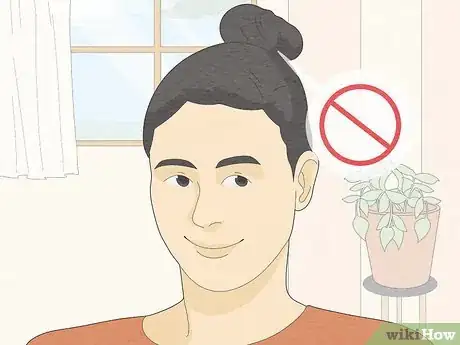
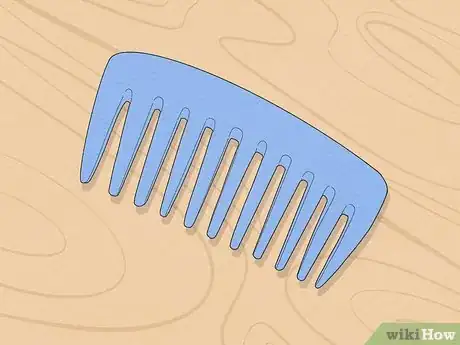
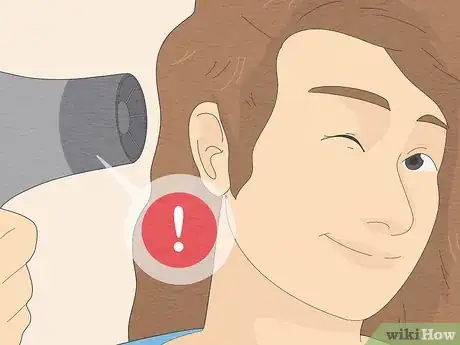
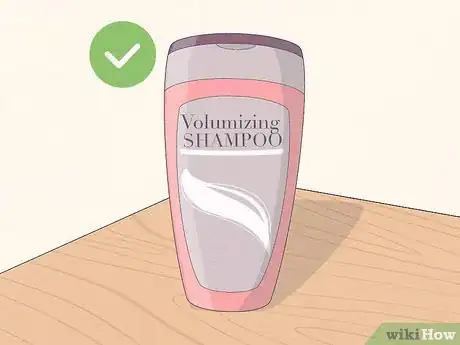
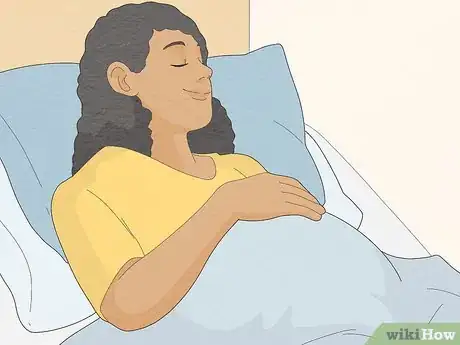
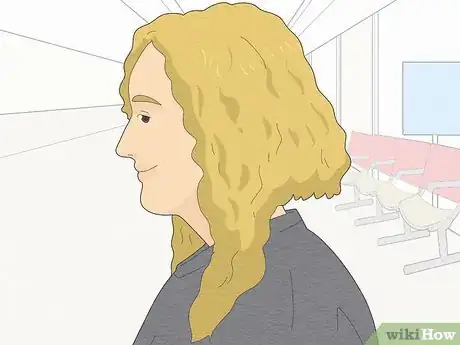
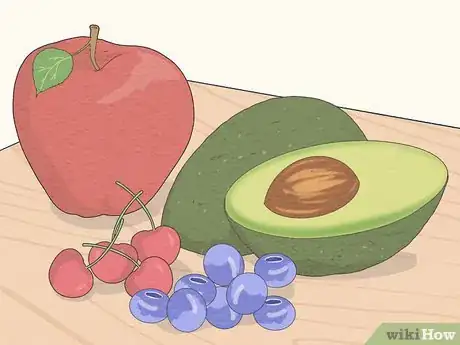
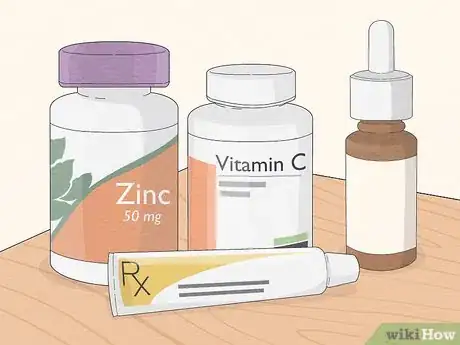
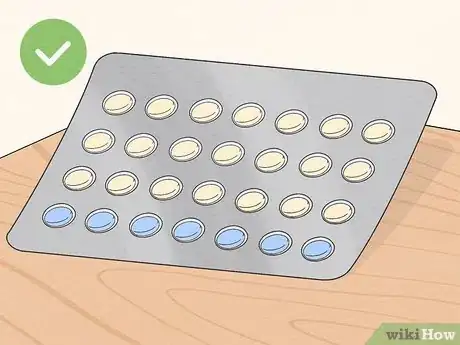

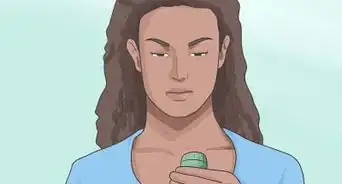
-Step-11.webp)


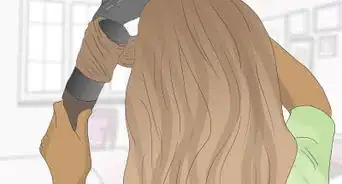
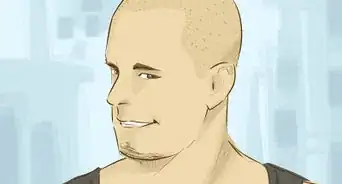

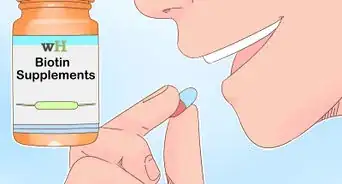

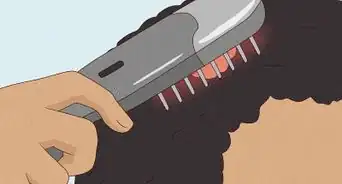














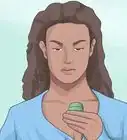
-Step-11.webp)



































